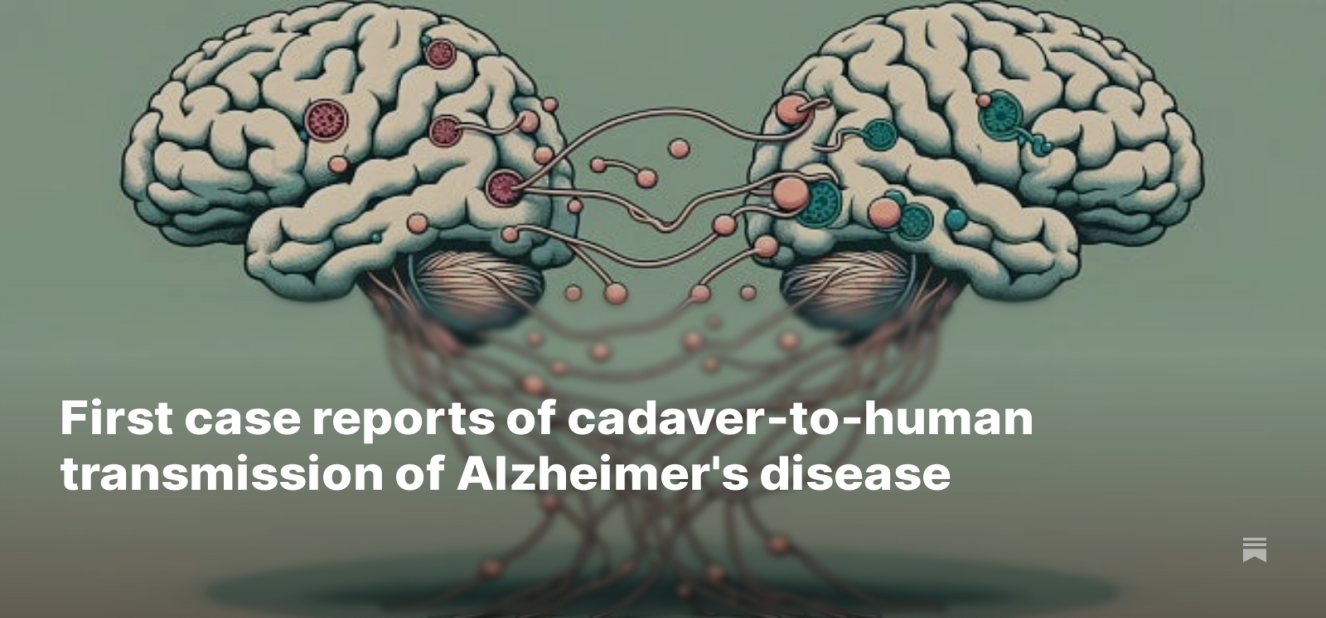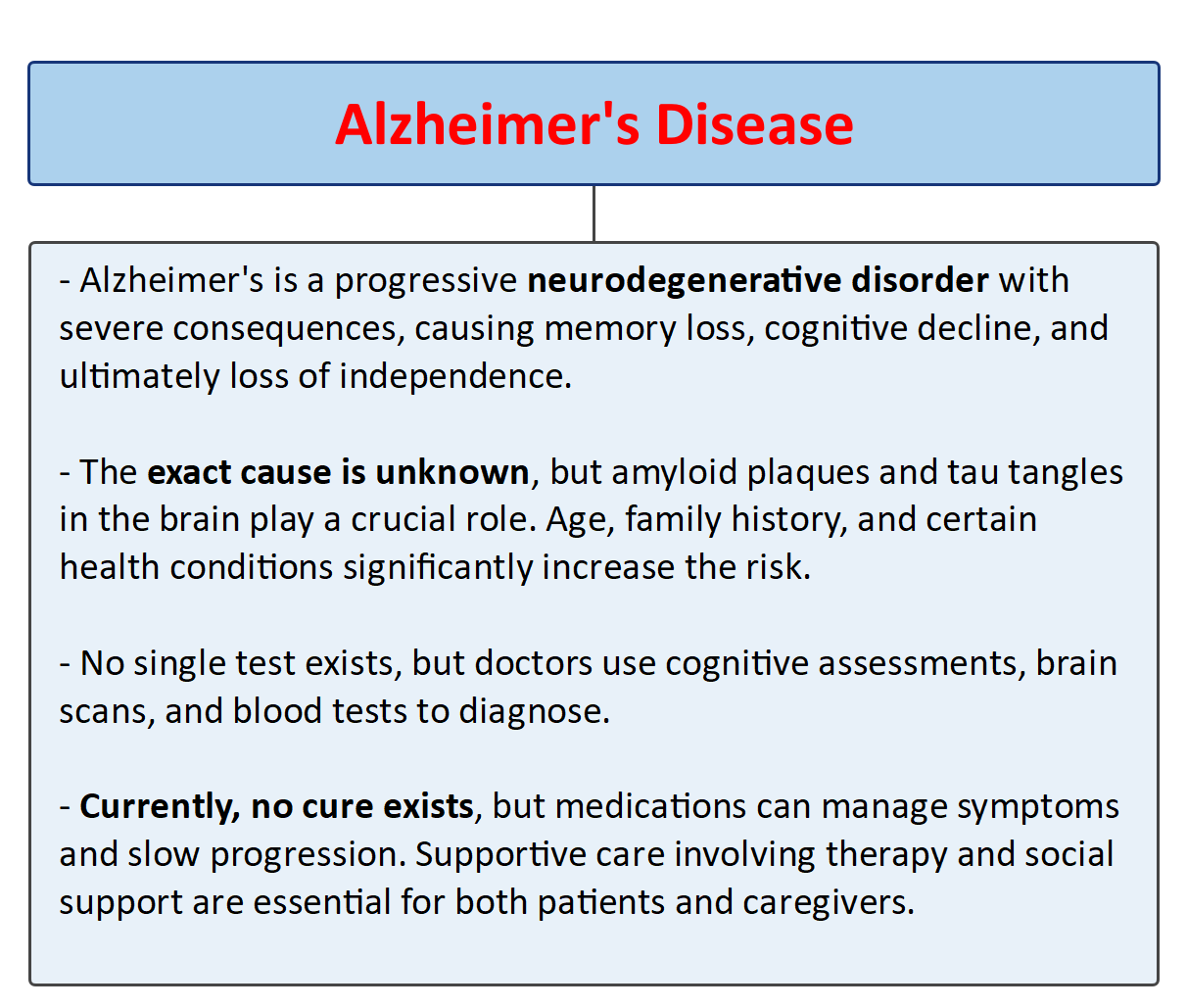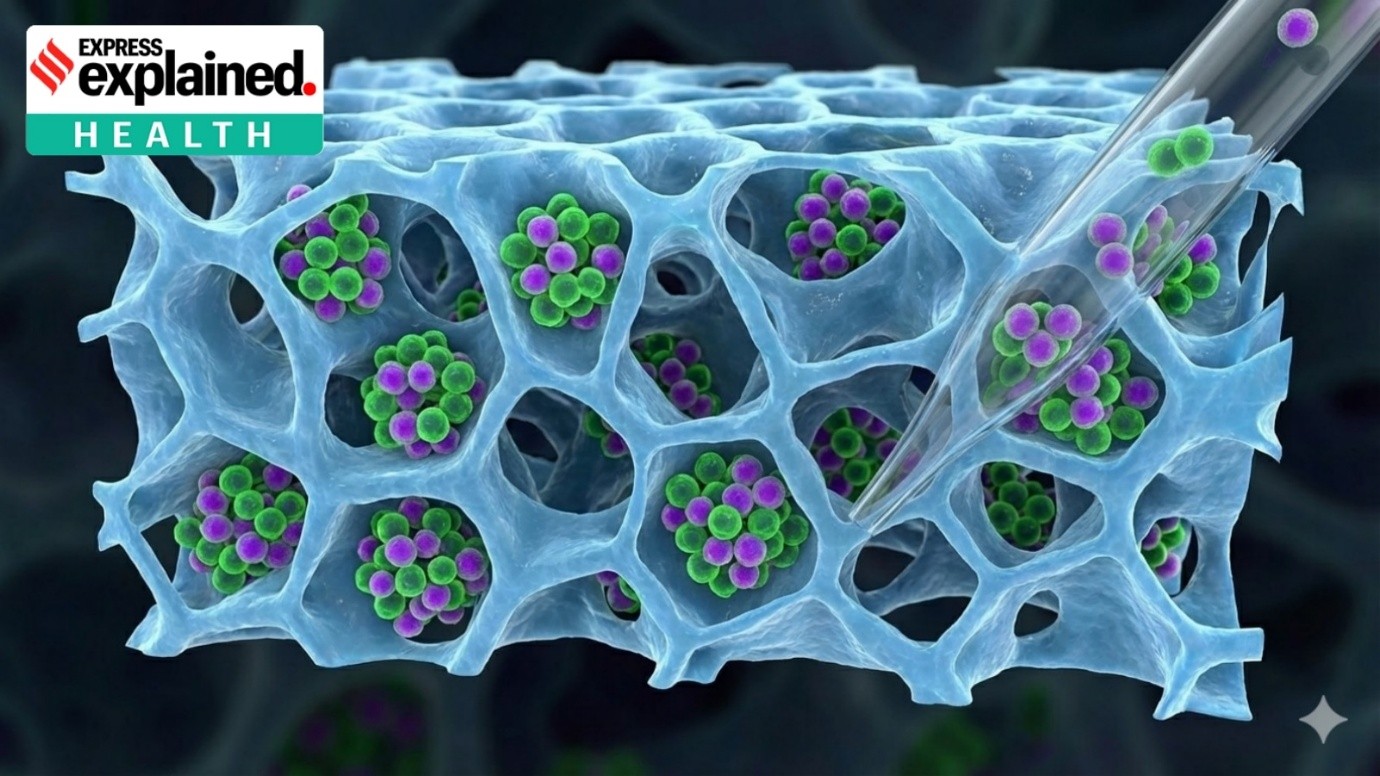Description

Copyright infringement not intended
Picture Courtesy: https://twitter.com/gwas_stories/status/1752318569080123453
Context: The study published in the Nature Journal suggests that rare medical accidents involving the transmission of Alzheimer's disease from one human to another can occur.
Details
- In general, Alzheimer's is not considered contagious through everyday activities or routine care. There is no evidence that casual contact, such as sharing meals or living with someone with Alzheimer's, can increase the risk of developing the disease. However, rare medical accidents can potentially transmit Alzheimer's disease.
- A recent study published in Nature highlighted a specific instance where individuals who received human growth hormone extracted from deceased donors decades ago developed Alzheimer's later in life. This is believed to be due to the contamination of the growth hormone with abnormal protein aggregates called amyloid-beta, a hallmark of Alzheimer's disease.
Alzheimer's Disease
- Alzheimer's disease is the most common cause of dementia, a group of symptoms impacting memory, thinking, and behaviour severely enough to disrupt daily life. While it primarily affects individuals over 65, it can also occur in younger people, highlighting its complexity.
- Alzheimer's is a progressive neurodegenerative disease, meaning brain cells lose function and die over time. It primarily affects the hippocampus, responsible for memory, and spreads to other regions, impacting various cognitive abilities.
- The exact cause is unknown, but two key factors are involved:
- Abnormal protein deposits called amyloid beta accumulate between brain cells.
- Another protein, tau, forms twisted fibres inside brain cells, disrupting their function.
- Increasing age is the strongest risk factor, but others include family history, genetic mutations (like ApoE4), vascular health issues, and head injuries.

Diagnosis and Treatment
- Diagnosis: There is no single test for Alzheimer's, but doctors use a combination of medical history, cognitive assessments, brain scans, and blood tests to reach a diagnosis.
- Treatment: There is no cure for Alzheimer's, but treatments can manage symptoms and improve quality of life. These include:
- Cholinesterase inhibitors and memantine can help with memory and thinking.
- Cognitive stimulation, social activities, and physical exercise can slow down cognitive decline and improve well-being.

Must Read Articles:
Alzheimer: https://www.iasgyan.in/daily-current-affairs/alzheimer-17
|
PRACTICE QUESTION
Q. What is the primary cause of Alzheimer's disease in the brain?
A) Viral infection
B) Vitamin deficiency
C) Build-up of protein plaques and tangles
D) Head injury
Answer: C
Explanation: The build-up of amyloid plaques and tau tangles in the brain is a hallmark of Alzheimer's disease and is believed to play a key role in its progression.
|













